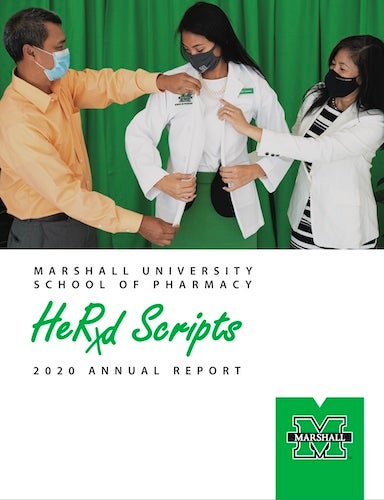If health care is team-based, why isn’t the classroom?
That’s a question Marshall asked as the institution began the venture into pharmacy education. There has to be a style of learning that better parallels health care while also curing the issues of the drab, traditional classroom, right?
The remedy: Active Learning.
Active Learning, defined
Active Learning (n.) the process whereby students engage as an active participant in their education via activities, such as reading, writing, discussion, or problem solving that promote analysis, synthesis, and evaluation of class content.
Active learning is not passively listening to a professor lecture and completing homework independently at home. Active learning is collaborative. It’s face-to-face discussions, debates, case studies, games, role playing and simulations. It’s made for the new generation of students – those who are visual, hands-on, and social.
- Studies show that in STEM classrooms that utilize Active Learning, students earn 6 percentage points higher and are 50 percent more likely to succeed than in the traditional classroom.
The Flipped Classroom
To better help facilitate this style of learning, Marshall first needed to develop an innovative classroom space. Enter, the studio classroom. The studio classroom facilitates team-based learning by seating students in groups of 6 at rectangular tables.
The “flipped classroom” concept places special emphasis on the social aspect of learning, by moving the information in advance of class time and making the face-to-face sessions a way of enhancing understanding and building new knowledge through interaction with peers and professors. Gone are the days in which collaboration on homework in the classroom is discouraged. In our environment peer learning is not only encouraged, it’s expected.
How it Works
Pre-Work: Students receive “pre-work” which may include study guides, presentations, videos, audio, parts of chapters from pharmaceutical textbooks, journal articles, previously recorded lectures and screencasts which will need to be studied prior to class time.
IRAT & GRAT: Once students arrive to class, their knowledge learned from pre-work is explored via an IRAT (Individual Readiness Assessment Test) in which their individual comprehension of the material is assessed. Afterwards, students complete, in a team, a GRAT (Group Readiness Assessment Test) identical to their individual assessment which allows them to utilize their unified team brain power to answer the questions correctly. Both the individual quiz scores and team quiz scores count toward a student’s final grade.
Class time: Class time is then used, rather than for a lecture, to emphasize and focus on specific information from the pre-work, answer questions regarding concepts that may not have been clear, and work together to implement the ideas learned via case studies, games, instant recall, etc. This large group conversation largely replaces the lecture the instructor would historically have given in a traditional environment. It is used to reinforce and clarify the pre-work rather than strictly disseminate information. Classes are recorded, allowing students to later revisit conversations, questions and materials mentioned in-class that they otherwise may have forgotten.
Interprofessional Experiences
Marshall also facilitates interprofessional education experiences (IPEs) via case studies in this same type of environment. Because health care requires constant communication with multiple health care professions, students in the School of Pharmacy, the Joan C. Edwards School of Medicine, the School of Physical Therapy, and College of Health Professions learn the contributions of one another through unique peer learning activities throughout the year.
Simulation Environments
“I hear, and I forget. I see, and I remember, I do, and I understand.” – Confucius
When you apply information, rather than simply hear it or read it, your brain is more likely to remember and recall it. Thus, Marshall provides a variety of hands-on mock environments to allow our students repetitive experiences in realistic pharmacy settings within the walls of the School of Pharmacy.
- The skills alcoves and the compounding lab serve as areas where students learn realistic clinical skills under supervision of their professors. The School of Pharmacy also utilizes standardized patients to aid in their counseling skills and help model a real-life pharmacy environment.
- By working in these simulated environments, students earn 3 certifications upon graduation in Immunizations, Medication Therapy Management, and Diabetes Management.
Early Practice Experience
Students apply what they learn through IPPEs (Introductory Pharmacy Practice Experiences) which are often introduced at most institutions in their P2 or P3 years. At Marshall, we want our students involved from their first year.
- With Marshall’s Active Learning curriculum, students are certified and in the field by their second semester. At the end of four years, our students will have nearly four years worth of pharmacy practice experience rather than two or three.
- Plus, because of Marshall’s unique geographic location, Marshall students receive a student intern license in 3 states (Ohio, Kentucky, and West Virginia) rather than one! They will then be prepared to sit for each state’s license exam upon graduation.
